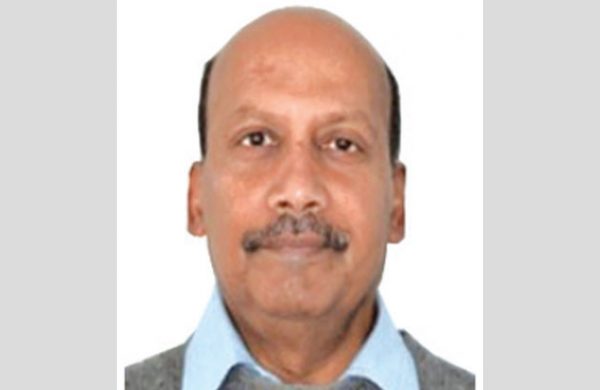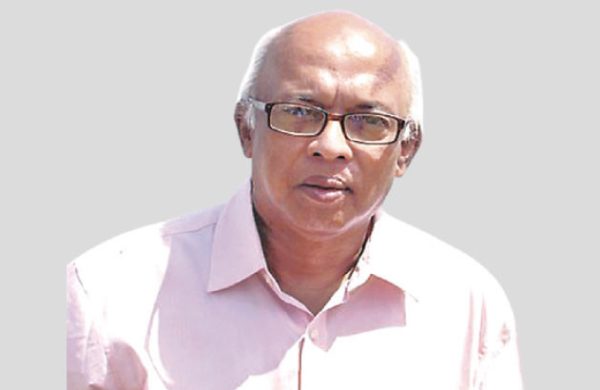Zero Tolerance for Corruption Means No Corruption Anywhere
- Update Time : Sunday, October 27, 2024

—Taufiqur Rahman—
The rampant corruption of the past few decades has created havoc with our economy and people’s lives. Every government sector or agency has been mired in uncontrolled corruption. After the student-led revolution, the interim government has taken a firm stand against corruption. However, old habits die hard. Corruption is on the rise again.
According to the UN, the world loses $2.6 trillion or 5 % of GDP to corruption, thus undermining the poverty alleviation initiatives by countries. This percentage figure is probably higher in Bangladesh. It was higher in Sri Lanka before the fall of the Rajapaksa government. Corruption Perception Index (CPI) of Transparency International put Bangladesh at 24 out of 180 countries. CPI uses a scale of 0 to 100 with 100 as very clean and 0 as highly corrupt. The weakening of the justice system and rule of law are the main reasons why public official’s accountability is feeble. The lack of an independent judiciary undermines the rule of law, thus promoting the impunity of corrupt officials.
According to the IMF, “The cost of corruption is greater than the sum of lost money: distortions in spending priorities undermine the ability of the state to promote sustainable and inclusive growth. They drain public resources away from education, health care and effective infrastructure—the kinds of investments that can improve economic performance and raise living standards for all.” Imagine for a moment if we can recover 5% of our GDP, how much money will be available for investment. In 2023, our GDP was $438 billion. 5% of that is $22 billion. This $22 billion could have been invested in much-needed areas of education, health and infrastructure. For comparison’s sake, we earned $23 billion in 2023 from remittances and $47 billion from garments exports. If the percentage of money lost to corruption in Bangladesh is 10%, we lost $43.8 billion. Given the rampant corruption of the last 15 years, I would not doubt a 10% figure.
What can the government do to reduce or eliminate corruption?
First, strengthen the rule of law and fast-track actions on the independence of the Judiciary. Strengthening the rule of law is the most difficult as you would need to make sure law enforcement agencies, which have been used to corrupt practices, are now held to a higher standard of behaviour and public scrutiny. The message to all law enforcement officials is simple: zero tolerance for corruption means no corruption of any kind anywhere. Punishment will be severe if anyone is found to be corrupt. Set a few examples quickly to demonstrate the government’s resolve to nip this habit in every instance. Only severe punishment can change this behaviour.
Second, start a whistle-blower system with the right protection of whistle-blowers. Make it extremely easy for the public to report all incidences of corruption. Educate the public about the whistle-blower system and the protection it will provide to those who use it. False reporting will be punishable as we do not want a culture of harassment.
Third, ensure the protection of investigative journalists. Our media must have the freedom and protection to report corruption among powerful people. Media plays a strong role in countries which rank high in CPI. According to IMF, “Promoting transparency and a free press helps increase accountability… Our cross-country analysis shows that a free press enhances the benefits of fiscal transparency in curbing corruption.”
Fourth, invest in information and communication technologies so that online transactions are easily possible, thus reducing the possibility of human interaction for corruption. The recent announcement by the government to e-file tax returns is a welcome move. Online systems developed by the previous government need to be updated to make them user-friendly. Earlier, online systems did not curb corruption because the systems were flawed. Poorly designed systems did not empower the public. Keep accountability at the centre of all systems development. Make it extremely easy for people to use online systems using their NID cards. For example, in Chile and South Korea, electronic procurement reduced corruption significantly. Online platforms in every sector will allow citizens to monitor public sector expenditures in each project. Recently, I learned about a certain collector of a municipality in a city who had to be paid significant bribes to reduce the apartments’ holding and other taxes. If an online system had been established, the apartment owners could have decided themselves how much to pay and not involve this collector. The government would not have lost the revenue through the manipulation of this collector. Online systems should provide information and guidance on how well people can use the system without any help from government officials.
Fifth, the government must make it a crime for businesses, local and international, to pay bribes to secure business deals. We need to partner with other countries to ensure that we can collectively control corruption across the borders. The USA government has a strict anti-corruption mandate for businesses and many companies have been punished and fined for using bribery to secure businesses. The World Bank’s Anti-corruption for Development Global Partnership includes 250 partners who are dedicated to fighting corruption. The Financial Action Task Force (FATF), an intergovernmental body, leads global action to combat money laundering and terror finance. The World Bank’s Financial Stability and Integrity unit assists countries in assessing their national money laundering risks and puts in place robust anti-money laundering systems. The Stolen Asset Recovery (StAR), a joint initiative of the World Bank and the United Nations Office on Drugs and Crime (UNODC), facilitates the return of proceeds from corruption to affected countries.
Finally, the role of every citizen is paramount to reduce corruption. We must commit to contributing our fair share so that the country benefits by increasing investible revenues. Controlling corruption is a daunting task and it is now more complicated as we must unlearn the bad behaviours of thousands of people who got used to earning extra money with impunity. Behavioural change is a long-term process, but it can be accelerated if the punishment is severe, and law enforcement is quick and transparent.
______________________
The writer is an international development expert based in Maryland, USA and can be reached at [email protected]



















